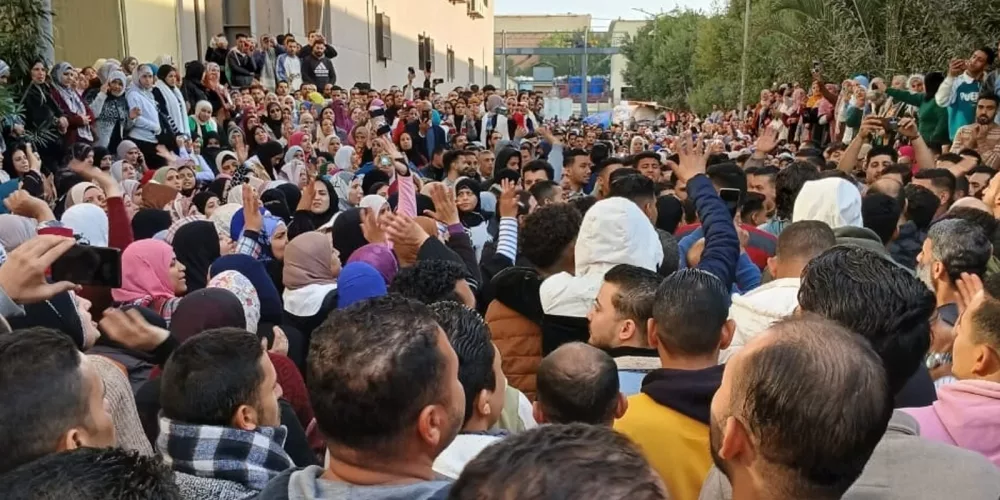The “Committee for Justice” (CFJ) has monitored that workers of “Sedico Pharmaceuticals” ended their strike on February 18, following threats from the “National Security” to imprison two of their colleagues on charges related to terrorism, espionage, and communication with opposition media abroad if the strike continued.
CFJ reported that on February 17, four non-unionized striking workers were summoned by the National Security, where an officer informed them that the company management had agreed to grant the workers a bonus equivalent to one month’s basic salary, not deduct the mandatory leave period from their vacation balance, and provide a monthly allowance of 1,000 EGP. However, the officer also warned two of the four workers that they would face imprisonment if the strike continued.
Initially, the striking workers rejected both the offer and the threat from the “National Security,” as the company management had conditioned the official approval of their demands on ending the strike first. However, they were ultimately forced to accept due to fears that the threats against their colleagues would be carried out.
It is worth noting that the threats from the “National Security” against Sedico workers were not the first of their kind during the nine-day strike. Earlier, the head of the company’s union committee and four non-unionized workers had been summoned to meet with a National Security officer, who ordered them to end the strike before management would consider their demands, threatening them with imprisonment and dismissal if they continued speaking to opposition media.
The Sedico workers began their strike on February 10, demanding a bonus equivalent to one month’s basic salary, a cost-of-living allowance of 2,000 EGP, and that the days of enforced work stoppage imposed by the management in the past two weeks not be deducted from their vacation balance.
The strike followed the company’s decision to halt production on January 23 and impose mandatory leave on workers in response to their protest against setting the annual raise rate at 22% instead of the 35% they had demanded. The company justified this decision by citing maintenance work, but on February 10, it announced that the maintenance was complete, prompting workers to return and begin their strike.
CFJ condemns the security threats received by Sedico workers and demands an end to security interventions in labor strikes, which have intensified amid deteriorating social justice principles and a severe economic crisis, with authorities prioritizing the interests of businessmen over those of workers.
CFJ urges the Ministry of Manpower to intervene in order to safeguard the financial rights of workers and defuse labor crises, as it is responsible for monitoring labor affairs and resolving disputes. The committee calls for the ministry to take on this role instead of allowing the “National Security” to intervene and resort to threats against workers as a temporary and ineffective solution.






